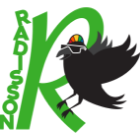Academics
Radisson is an English language school that implements provincially mandated curricula, including the core subjects - language arts, math, science and social studies. The foundation skills - literacy and communication, problem solving, human relations and technology - are integral components of and are interwoven into all curricular areas. Both music and physical education offer an extra-curricular component for students. Radisson’s resource program works within a collaborative/consultative model to provide support for students with academic or social/emotional difficulties and for students who require enrichment.The resource teacher accesses support from our paraprofessionals, the divisional Student Services Team and the divisional Student Services Clinical Unit to address student needs. Reading Recovery, a literacy development program for six year olds, and Early Numeracy Intervention, a numeracy development program for kindergartens and Grade 1s, are offered at Radisson School.
English Language Arts (ELA)
Throughout English language arts instruction, teachers engage students in rich learning opportunities that integrate listening, speaking, reading, writing, viewing and representing. Students learn to understand and appreciate language, develop proficiency that generates confidence and competence, and view themselves as language learners.
General outcomes for ELA:
- Explore thoughts, ideas, feelings and experiences
- Comprehend and respond personally and critically to oral, literary and media texts
- Manage ideas and information
- Enhance the clarity and artistry of communication
- Celebrate and build community
Mathematics
The mathematics curriculum is designed to support and promote the understanding that mathematics is a way of learning about our world and is part of our daily lives. Mathematics and its study encourage the development of creative and logical thinking, problem-solving skills, and co-operative interaction. The learning environment should value and respect all students’ experiences and ways of thinking, so that learners are comfortable taking intellectual risks, asking questions, and posing conjectures.
The main goals of mathematics education are to prepare students to:
- use mathematics confidently to solve problems
- communicate and reason mathematically
- appreciate and value mathematics
- make connections between mathematics and its applications
- commit themselves to lifelong learning
- become mathematically literate adults, using mathematics to contribute to society
Science
The development of increasingly scientifically literate individuals is one of the primary goals of science education. Within that vision can be included skills such as effectively interpreting technical information, participation in the solution of problems that appeal to new scientific understandings, making informed decisions in relation to issues and trends in a technological society, better adapting to and accommodating rapid change, and welcoming the creation of new knowledge.
Social Studies
Social studies is the study of people in relation to each other and to the world in which they live. As a study of human beings in their physical, social and cultural environments, social studies helps students acquire the skills, knowledge, and values necessary to become active democratic citizens and contributing members of their communities, locally, nationally, and globally.
Physical Education and Health Education
The combined physical education/health education curriculum is designed to address the five major health risks for children and youth. The aim of the curriculum is to provide students with planned and balanced programming to develop the knowledge, skills, and attitudes for physically active lifestyles.
Basic French
Basic French is offered to all students in grades 4 and 5. The French language is learned through themes such as foods, school items, holidays, clothing, etc. with both oral and written work. Although focus is on expression and vocabulary rather than grammar, some verb and sentence structure work is also included informally to allow the students to more easily communicate in a second language.
The Arts
The arts include music, dance, drama, and the visual arts. Arts education is not limited to performance and artistic production; the process of learning about and through the arts also involves exploration and reflection, historical and cultural studies, and the search for value and meaning. The individual arts are characterized by unique forms, each employing a variety of media. Students require substantive instruction and active participation in the arts to gain knowledge, skills, and understanding in one or more of the arts.
Technology
Technology is an effective tool to inspire and motivate students to achieve success. Literacy with information and communication technology (ICT) consists of critical and creative thinking, ethics and responsibility, and ICT literacy. Literacy with ICT is the ability to find, evaluate, use and share information by thinking critically, creatively and ethically. It is also about when, why and how to us ICT in responsible ways.
Technology is used for the purposes of:
- Research
- Product creation
- Data collection
- Communication
- Instruction
Radisson has a technology lab available to all the students in the school.
 Radisson School
Radisson School